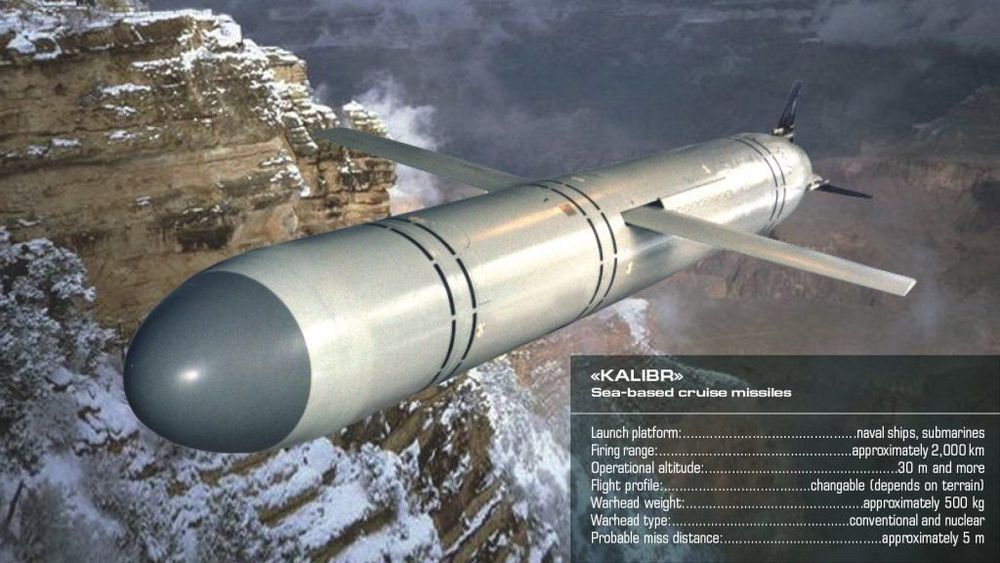Instead of building a 100-kilowatt weapon, the Army now plans to leap straight to 250 or even 300 kW — which could shoot down much tougher targets.



Circa 2018
In 1963, L. Herwig proposed the nuclear pumped laser, based on the idea that the ions produced from nuclear reactions can be used as a driver for the laser medium. Since high power and high efficiency lasers with short wavelengths require high pumping power densities, nuclear pumping is an extremely appealing method. Nuclear pumped lasers could therefore direct significant amounts of energy emitted in a nuclear explosion into a very narrowly collimated beam. This beam would not only be able to destroy or damage targets from very long ranges, but also preclude subsequent use due to its own self-damaging mechanism to the initial weapon. [1] This system would ultimately constitute “a ‘third generation’ of nuclear weapons, the first two generations being the atomic (fission) and the hydrogen (fusion) bombs,” according to Edward Teller, also known as “the father of the hydrogen bomb”. [2] In this sense, it would be able to target energy toward specific targets instead of spreading energy into all directions.
Strategic Defense Initiative
On March 23, 1983, President Reagan announced plans to build a defensive Anti Ballistic Missile (ABM) system to protect against a potential intercontinental ballistic missile attack on the United States (Fig. 1). The Strategic Defense Initiative (SDI) program outlines a multilayered defense system. The first line of this defense aimed to destroy missiles in their boost phase just after launch, with a candidate for this first line being the nuclear-explosion-pumped X-ray laser. [2].

Circa 2017
One of the options that the United States is looking at to counter North Korea’s nuclear-tipped ballistic missiles is an experimental weapon called CHAMP.



In 1948 Frank Wisner was appointed director of the Office of Special Projects. Soon afterwards it was renamed the Office of Policy Coordination (OPC). This became the espionage and counter-intelligence branch of the Central Intelligence Agency. Wisner was told to create an organization that concentrated on “propaganda, economic warfare; preventive direct action, including sabotage, anti-sabotage, demolition and evacuation measures; subversion against hostile states, including assistance to underground resistance groups, and support of indigenous anti-Communist elements in threatened countries of the free world.”
Later that year Wisner established Mockingbird, a program to influence the domestic American media. Wisner recruited Philip Graham (Washington Post) to run the project within the industry. Graham himself recruited others who had worked for military intelligence during the war. This included James Truitt, Russell Wiggins, Phil Geyelin, John Hayes and Alan Barth. Others like Stewart Alsop, Joseph Alsop and James Reston, were recruited from within the Georgetown Set. According to Deborah Davis, the author of Katharine the Great (1979) : “By the early 1950s, Wisner ‘owned’ respected members of the New York Times, Newsweek, CBS and other communications vehicles.”
In 1951 Allen W. Dulles persuaded Cord Meyer to join the CIA. However, there is evidence that he was recruited several years earlier and had been spying on the liberal organizations he had been a member of in the later 1940s. According to Deborah Davis, Meyer became Mockingbird’s “principal operative”.

Thanks to the Contingency Operations program, the military is able to utilize the first GPS III satellite without the next-generation ground segment being built for it. The second GPS III satellite was launched in April, and a third launch is slated for later this year. (Airman 1st Class Dalton Williams/Air Force)


Researchers have developed a new way to use lasers to see around corners that beats the previous technique on resolution and scanning speed. The U.S. military is interested for obvious reasons, and NASA wants to use it to image caves. The technique might one day also let rescue workers peer into earthquake-damaged buildings and help self-driving cars navigate tricky intersections.
Researchers from Rice, Stanford, Princeton, and Southern Methodist University have developed a new way to use lasers to see around corners that beats the previous technique on resolution and scanning speed. The findings appear today in the journal Optica.
The U.S. military—which funded the work through DARPA grants—is interested for obvious reasons, and NASA wants to use it to image caves, perhaps doing so from orbit. The technique might one day also let rescue workers peer into earthquake-damaged buildings and help self-driving cars navigate tricky intersections.
One day. Right now it’s a science project, and any application is years away.

As the U.S. Army increasingly uses facial and object recognition to train artificial intelligent systems to identify threats, the need to protect its systems from cyberattacks becomes essential.
An Army project conducted by researchers at Duke University and led by electrical and computer engineering faculty members Dr. Helen Li and Dr. Yiran Chen, made significant progress toward mitigating these types of attacks. Two members of the Duke team, Yukun Yang and Ximing Qiao, recently took first prize in the Defense category of the CSAW ‘19 HackML competition.
“Object recognition is a key component of future intelligent systems, and the Army must safeguard these systems from cyberattacks,” said MaryAnne Fields, program manager for intelligent systems at the Army Research Office. “This work will lay the foundations for recognizing and mitigating backdoor attacks in which the data used to train the object recognition system is subtly altered to give incorrect answers. Safeguarding object recognition systems will ensure that future Soldiers will have confidence in the intelligent systems they use.”